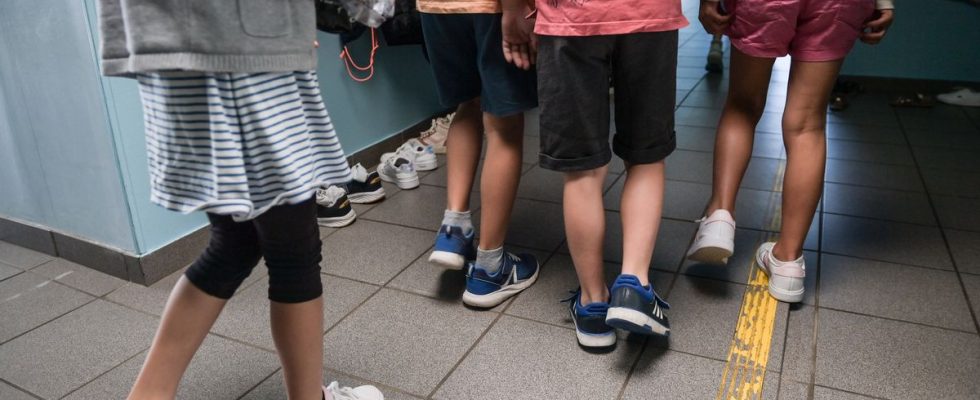Thousands of children were probably adopted illegally abroad by Swiss people between 1970 and 1990, which continues to “mark” their lives, the Swiss government acknowledged on Friday.
The Federal Council announced, in the wake of the revelations of a new report it had commissioned, the request for a review of international adoption law.
Many testimonials
Already in 2020, after numerous poignant testimonies from people illegally adopted in Sri Lanka, a first report showed the lack of reaction from the authorities “despite prior and clear indications of irregularities committed by intermediaries with a view to adopting children from Sri Lanka. »
The second study by the Zurich University of Applied Sciences (ZHAW) focuses on ten other countries of origin: Bangladesh, Brazil, Chile, Guatemala, India, Colombia, South Korea, Lebanon, Peru and Romania.
“Indications also tend to show the existence of illegal practices in these countries, child trafficking, falsification of documents and false indications of origin,” notes the Council in a press release.
Over the period in question, ZHAW researchers found 8,000 authorizations to enter Switzerland for children from these countries: 2,799 children came from India, 2,122 from Colombia, 1,222 from Brazil and 1,065 from South Korea.
Marked lives
The available documents do not make it possible to know the exact number of people concerned but the number of entry authorizations into Switzerland “however shows that several thousand children adopted during the period under investigation could be affected by irregularities”, recognizes the government.
He “regrets that the authorities have not sufficiently taken their responsibilities towards children and their families”. “These failings continue to mark the lives of people adopted at the time,” underlines the Council, which explains that it is up to the cantons (the Swiss federated states) “to support the people concerned in the search for their origins. »
“Another dark chapter in the ‘history of adoption’ is brought to light,” underlines the Back to the Roots association, which helps adoptees from Sri Lanka in their searches but also other adoptees.
“Past failures regularly demonstrate this: as long as the responsible authorities do not apologize or offer adequate support measures, it is the organizations of people concerned, such as Back to the Roots, which offer adopted people a framework allowing them to address their own history. As incomplete and erroneous as this story may be,” denounces a press release from the association.
However, clues
The report shows that the Swiss authorities generally had indications of irregular and problematic practices in a large number of countries from which the children came, but that this did not push them to act.
What’s more, the researchers point out, the dominant belief at the time among officials in charge of adoption files was that adopted children would have a better life in Switzerland than in their country of origin. An opinion shared by future adoptive parents and intermediaries.
Researchers also cite the strong pressure from couples wanting to adopt which took precedence over the interests of adopted children. The flexibility granted to entry into Switzerland was justified by the good of the child even with an incomplete file.
New rules on international adoption?
The Federal Council wants to avoid such irregularities in the future. He set up a group of experts who developed two possible scenarios regarding international adoption.
The first would consist, in addition to reforming the law, of limiting cooperation to countries which respect the minimum guarantees in a “demonstrable” manner. The second would be to completely withdraw from international adoptions.
According to the report, around 50 children per year have still been adopted abroad in recent years. The Federal Council has instructed experts to present “in-depth clarifications” to it by the end of 2024.

